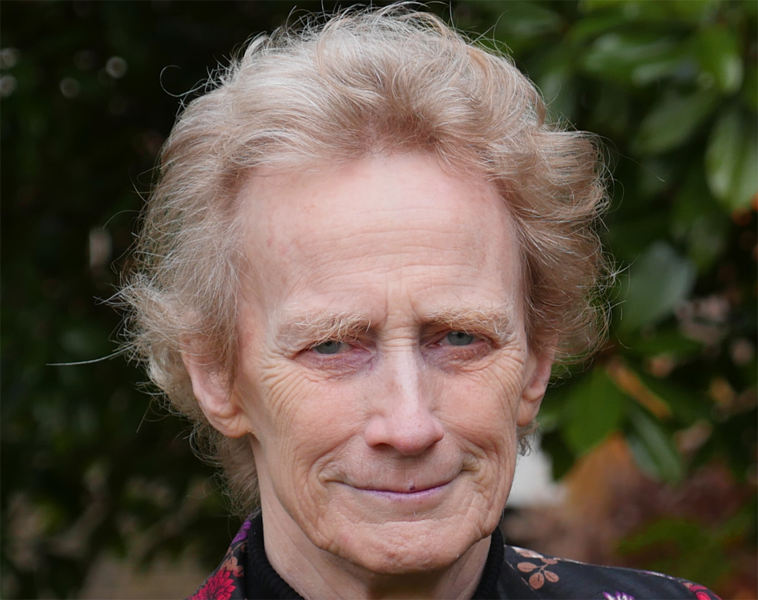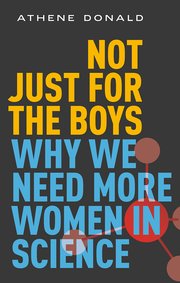Why we need more women in science: An interview with Dame Athene Donald MAE#
In the interview, Dame Athene Donald, member of the Physics and Engineering Sciences section of Academia Europaea since 2009, talks about her recently published book which examines the modern way of working in scientific research and how gender bias operates within it, drawing on the experiences of leading women in science.
About Dame Athene Donald MAE#
Dame Athene Donald is a prominent British physicist and member of several distinguished scientific organisations including the Royal Society and Academia Europaea.
and Academia Europaea.
As the director of WiSETI (Women in Science, Engineering, and Technology Initiative) at Cambridge University
(Women in Science, Engineering, and Technology Initiative) at Cambridge University from 2006 – 2014, Donald spearheaded initiatives aimed at supporting and empowering women in STEM fields. She also chaired the Athena Forum
from 2006 – 2014, Donald spearheaded initiatives aimed at supporting and empowering women in STEM fields. She also chaired the Athena Forum , an organisation focused on promoting the career progression and representation of women in STEM within UK higher education.
, an organisation focused on promoting the career progression and representation of women in STEM within UK higher education.
Dame Athene is a vocal advocate for women in science in mainstream media and through her personal blog . She has written extensively on the topic of gender equality, highlighting the challenges women face in STEM and offering insights into fostering inclusivity.
. She has written extensively on the topic of gender equality, highlighting the challenges women face in STEM and offering insights into fostering inclusivity.
Dame Athene has been recognised with numerous awards and honours. She was appointed Dame Commander of the Order of the British Empire (DBE) in 2010, received the UKRC’s Lifetime Achievement Award in 2011, and was honoured with a THE
in 2011, and was honoured with a THE Lifetime Achievement Award
Lifetime Achievement Award in 2019.
in 2019.
 .
.
The interview#
Congratulations on the release of your book, “Not Just for the Boys: Why We Need More Women in Science” Can you tell us why you felt it was important to write this?
What worries me is, how do I reach that particular audience and the general public? I’m not convinced that’s terribly easy. If there are systemic cultural issues it needs everyone to buy in, and not just people like the head of the Physics department or a young woman who thinks maybe STEM is not for her. It needs to be read more broadly, and I worry that it won’t be.”
Can you share a personal experience or turning point in your career that inspired you to become such a passionate advocate for women in science?
What are some of the main barriers that continue to hinder the progress of women in science, and how can we overcome these barriers to create a more inclusive scientific community?
How can men contribute meaningfully to fostering an inclusive environment in STEM, and have you seen any notable examples of male allies making a difference in this regard?
I can give you specific example from my book. I was at a committee meeting where we were interviewing people from an engineering background, both men and women. One woman had several patents to her name and we considered if she had received any money from the patents, or if the patents had been taken up by anyone. Then it came to a man, but instead it was commented on that it was wonderful he had patents. One of the men in the room pointed out that the same questions asked of the female candidate weren’t asked for the male candidate, and it was a double standard. That kind of activity can be hard to spot, but having a man draw attention to situations like that is really important. There’s plenty of double standards applied in that way.
There’s another example I can think of, which I’d like to think wouldn’t happen now. I was on a committee, and the man chairing it started by addressing us all as ‘gentlemen’. I wasn’t the only woman in the room, there were several other women on the committee, and I thought it was unacceptable. I felt as though if I had said something at the time I wouldn’t have got anywhere, so after the meeting I wrote to the chair and copied in not just the other women on the committee, but some of the men who I thought were allies. The chair wrote back and apologised, and said he was just used to there being only men in the room. At the next meeting, he did exactly the same thing – addressed us all as ‘gentlemen’ – and one of the men I’d written to immediately pointed it out. This was very effective, and the chair never did it again. But I think if I’d pointed it out again, I’d have just been labelled as a troublemaker, so it’s really useful to be in a position where men will speak up in support.”
What were some of the challenges you faced during your time as the first Gender Equality Champion at Cambridge University, and what were the key achievements that you are most proud of?
One of the things I felt pleased about was pushing through shared and enhanced parental pay. When shared parental leave came in, we tried to make it more financially viable for the man to take leave, because otherwise, inevitably, men won’t. That was one very tangible thing I pushed and the university agreed to.
A lot of it was less concrete than that. We talked for a long time about potentially setting up a fund for people returning from maternity leave, to help them get back into the workplace. Imperial were already doing it and I thought it was a really good idea. Ultimately it was introduced but in a rather broader sense called a ‘returners’ fund’ or similar, so it applied if you had been on sick leave or had general caring responsibilities, not just for mothers. It has been rather effective, and I know it has helped some academics feel very supported by the university. It expressed the view that if you had to take time off whatever reason, the university was there to help you get back on your feet.”
What has been the most rewarding aspect of your advocacy and the impact you have seen on the lives and careers of women in STEM?
 , I get the credit. Other people are doing hugely important things that may not get the same ‘wow factor’. During the time I’ve been active the conversation has changed massively, as when I was first putting my toe in the water there were some women who felt we couldn’t have men as allies. I think it’s really important that this has changed, and to some extent everyone is involved together. Not that I take responsibility for it, but I hope I have facilitated that move.
, I get the credit. Other people are doing hugely important things that may not get the same ‘wow factor’. During the time I’ve been active the conversation has changed massively, as when I was first putting my toe in the water there were some women who felt we couldn’t have men as allies. I think it’s really important that this has changed, and to some extent everyone is involved together. Not that I take responsibility for it, but I hope I have facilitated that move.
I am very conscious that young women look to me as an inspiration. There are many people who could be an inspiration, and it’s more that I’m visible whereas not everyone is. It’s both really nice to feel that people respond to you, but also sometimes I feel, “Oh my goodness, but it’s only me!”
I was at Hay festival last week talking about the book, and during the book signing three schoolgirls came up to me said how great it had been, which was really nice to hear. In many ways the book is aimed at parents and teachers as much as aspiring scientists, but to have these young girls come up to me, that was really nice. You can see it as the real face of someone responding to what you’re saying, and that’s always a good thing to hear.
When I took over as chair of the Athena Forum, I took over from Dame Jocelyn Bell Burnell
 , and Dame Julia Higgins
, and Dame Julia Higgins had been doing a lot of work in this space before me. It was partly through my blogging that I got a following; for a while I was blogging actively through the Guardian science blogs. It was a very conscious decision to write in my own name, and to demonstrate the experience of what I did. That made it more powerful at that time, certainly as more women were blogging anonymously because they were frightened of receiving abuse. I felt I was at that stage in my career where I thought, “There’s not much that people can do to me to knock me down. I am a professor, I am a Dame, I am an FRS, I should be fairly safe saying these things that perhaps others had less confidence to do.”
had been doing a lot of work in this space before me. It was partly through my blogging that I got a following; for a while I was blogging actively through the Guardian science blogs. It was a very conscious decision to write in my own name, and to demonstrate the experience of what I did. That made it more powerful at that time, certainly as more women were blogging anonymously because they were frightened of receiving abuse. I felt I was at that stage in my career where I thought, “There’s not much that people can do to me to knock me down. I am a professor, I am a Dame, I am an FRS, I should be fairly safe saying these things that perhaps others had less confidence to do.”




